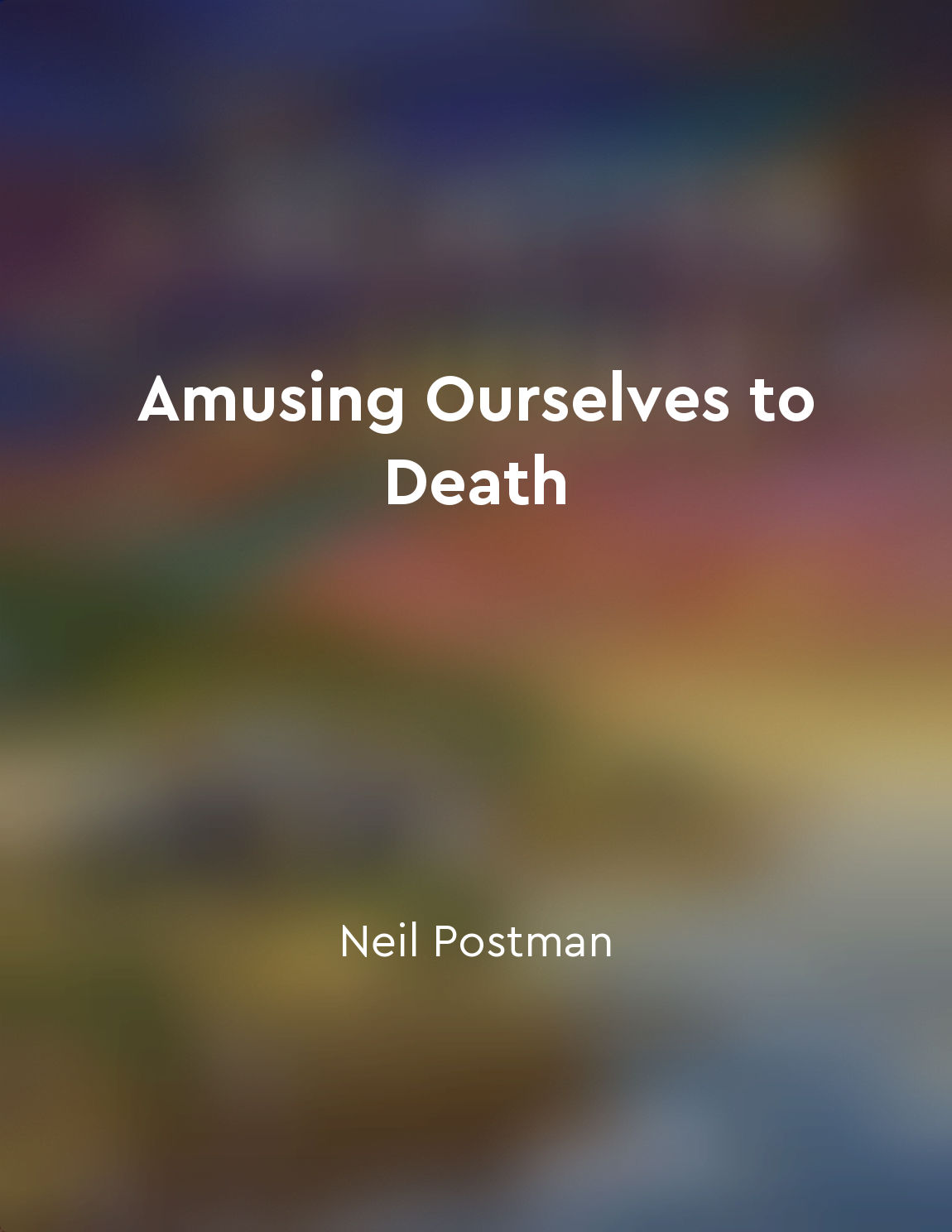TV creates a passive audience unable to participate fully from "summary" of Amusing Ourselves to Death by Neil Postman
Television, in its very nature, is a medium that demands little from its audience. Viewers are encouraged to sit back, relax, and passively consume whatever content is being presented to them. Unlike reading, which requires active engagement and interpretation, television requires no such effort. The images and sounds are fed to the viewer in a continuous stream, leaving little room for reflection or critical thinking. As a result, television creates a passive audience that is unable to fully participate in the content being presented. Viewers are easily swept up in the spectacle of the medium, allowing themselves to be entertained without questioning the messages being conveyed. This passivity extends beyond the screen, shaping the way people interact with the world around them. With television dominating the cultural landscape, it becomes increasingly difficult for individuals to engage in meaningful dialogue or critical thinking. Instead of actively participating in discussions and debates, people are content to sit back and absorb whatever opinions are being presented to them. This lack of engagement can have serious consequences for society as a whole, as it prevents people from fully participating in the democratic process. In a world where television reigns supreme, it is easy for individuals to become passive consumers of information rather than active participants in society. By encouraging passivity and discouraging critical thinking, television creates a population that is ill-equipped to fully engage with the complex issues facing the world today. As Neil Postman argues, this shift towards passivity has profound implications for the future of democracy and intellectual discourse.Similar Posts
Embracing diversity in all its forms can make us stronger as a society
In today's increasingly diverse society, the idea of embracing differences in all their forms is more important than ever befor...
Vision for a more sustainable and equitable future
The vision for a more sustainable and equitable future is a guiding principle that shapes the decisions and actions of individu...

Television fosters a culture of instant gratification
Neil Postman argues that television has played a significant role in shaping our society and has led to the development of a cu...
Technology can influence human relationships and communication
In Technopoly, Neil Postman argues that technology has a profound influence on human relationships and communication. He sugges...
Our sense of community is becoming limited to people who think like us
In America, our neighborhoods are becoming increasingly homogenous. We are choosing to live near people who share our political...

Understanding context is crucial in a mediasaturated society
In our media-saturated society, understanding context is essential. Without it, we are susceptible to being misled, misinformed...
Engaging with media develops analytical skills
In our modern world, media has become an integral part of our daily lives. Whether it's watching television shows, playing vide...
